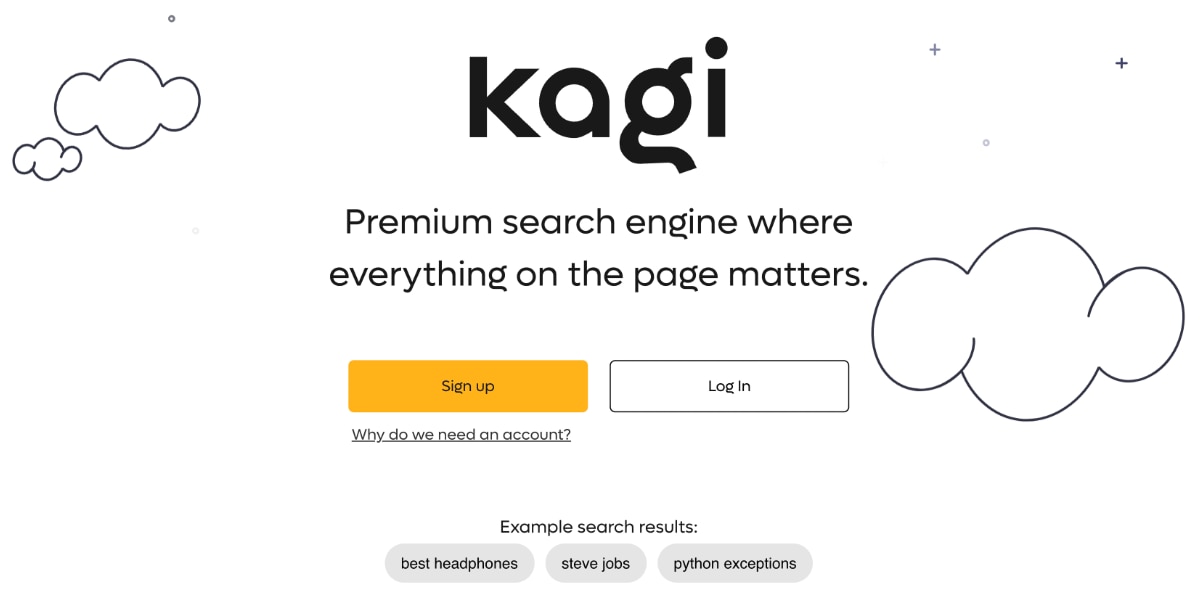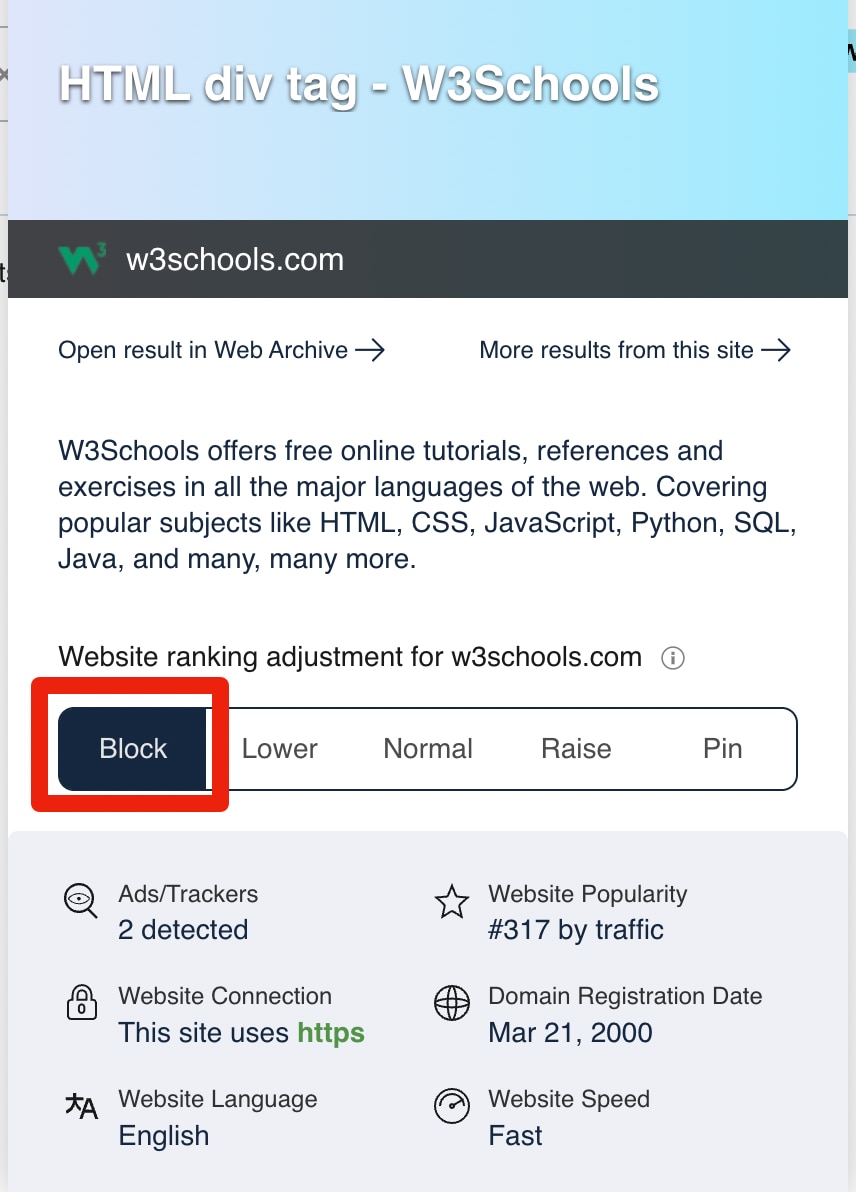I have some core beliefs about the technology world as a software developer and netizien.
- Open software and tools should be preferred
- Surveillance capitalism is net-net bad for society
- Tracking and retargeting on the Internet is morally wrong (it’s not just about ads, think about hidden levers like the Facebook–Cambridge Analytica data scandal)
- When people support small tech companies, we all win
Search at the intersection
Many of those ideas come to a head when thinking about search and web browsers. Today, we’ll focus on search:
Search engines are often, but not always, ad supported. Some of those more on the neutral-good side of the spectrum like DuckDuckGo. Others, are fully on the dark side.
There are a bunch of smaller, independent, privacy-oriented search engines. Most of those also have ads but do their best to limit tracking exposure. The one I’ve been using lately is called Kagi.

Kagi is a paid search engine that costs around $10/month. Premium indeed.
Live with it series
On the Python Bytes podcast, back in June 2022 I said I’d give Kagi a try and live with it for a month and then give a report. That report is overdue but here we have it.
I’m happy to say that I’m still using Kagi and really appreciate it.
Before Kagi I used DuckDuckGo and am a big fan. But Kagi shares a lot of the same philosphy as I laid out above. And it has some pretty great features:
- 100% privacy-respecting
- No ads (so no perverse incentives like what DuckDuckGo got caught up in, I still 💕 you DuckDuckGo)
- Ability to permanently block crappy websites that win with SEO only. How do you feel about w3schools? Yuck:

Just block it right there in the search results with Kagi (there is an option button by each result on the page):

Look before you leap
Kagi also lets you know you’re about to enter a hellscape of surveillance capitalism. CNN is one of those evil companies who thinks there just aren’t enough trackers and retargeting companies they can latch onto you.
The search results have a red warning symbol next to them.

Let’s see why:
![]()
Oh, I see. There are 43 trackers on that page. 43 trackers! There is just no excuse for this.
But with Kagi, you at least know what you’re headed into before you click. You also get nice web stats like SSL status, site popularity, and speed in that report.
So do I recommend Kagi?
Is switching to Kagi worth it? Three angles to consider:
First, even with all the highfalutin privacy and customization, a search engine is only as good as its results. I believe Kagi is actually buying search data from Google and Bing. The results seem basically the same as Google so, a solid checkmark here.
Second is the privacy. Yes, this is absolutely worth it and they seem to be true their word. Privacy is very important to me. Maybe it’s worthwhile to you too. Then again, most people would rather be the product and recieve a service for free. I also pay $6/mo for email for the same reason.
Third, is Kagi worth $10/month? Oh this one is right on the border. More than once I’ve had my mouse cursor over the cancel account button. Am I crazy to pay $10/month for search, I ask myself?
But every time I switch back to another search engine, I like it just a little less. I’m lucky. I can spend $10 extra a month on a service. I’m a software developer making a good income. I have my own business that is successful. So yes, it’s worth it. Your situation may be totally different and that’s fine. But if it is, maybe try DuckDuckGo over Google?
This post is definitely not an ad and is in no way sponsored by Kagi. But if the principles I laid out here appeal, consider giving Kagi a try. Worst case, you’ll dodge a few ad trackers and support a small tech company for a month.
Feel free to pick up the discussion on my Mastodon post for this essay:
